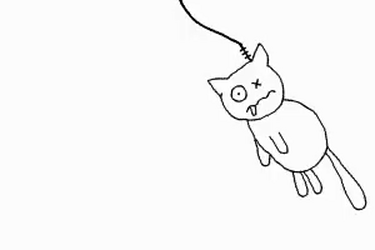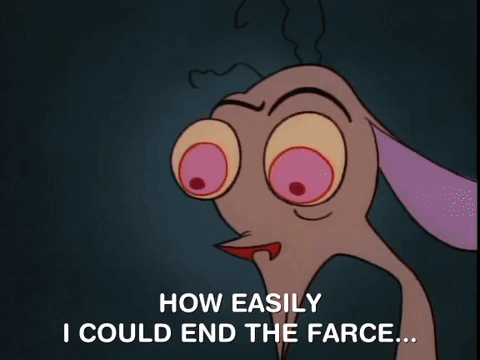Eating the Dead Cat: Effective media analysis ignores the distractions and focuses on the power
Hey! Look over there! Yeah! We shot a cat. In. The. Face.

This Conservative government has more dead cats than the average trainee serial killer’s chest freezer. The Dead Cat Strategy (aka Deadcatting) — introducing a sensational, dramatic, or shocking topic to divert from something that is damaging your campaign — entered the public imagination in 2008 when Boris Johnson, then merely an occasional Have I Got News For You host, libidinous editor of The Spectator, and candidate for London Mayor, employed Australian vampire Lynton Crosby to run his campaign.
Johnson subsequently wrote of Crosby’s advice:
"There is one thing that is absolutely certain about throwing a dead cat on the dining room table – and I don’t mean that people will be outraged, alarmed, disgusted. That is true, but irrelevant. The key point, says my Australian friend, is that everyone will shout, ‘Jeez, mate, there’s a dead cat on the table!’ In other words, they will be talking about the dead cat – the thing you want them to talk about – and they will not be talking about the issue that has been causing you so much grief."
In government, with Dominic Cummings, a master of metaphorical cat slaying with the eyes and demeanour of an actual sociopath, running the show, Boris Johnson has reached addict levels when it comes to deadcatting. There is no crisis for this government that is not swiftly followed by a ‘dead cat’ being extracted from the freezer and trebuchet at the hungry media who feast on icy entrails with blank-eyed glee.
Deadcatting causes you to focus on the latest outrage and, worse, the latest conversation around the latest outrage. In the social media environment, less a battle of ideas and more a battle around the absence of them, dead cats enter the discourse on an almost hourly basis. If the Tory Party had an official fragrance, it would be called Bad Faith, and smell of money and bullshit.
But Dead Cat Tennis is a fine game for columnists. They live week to week, with a looser grip of object permanence than the average baby. Since most columnists now don’t have the balls (or the loyal audiences) to publish collections of their columns, it doesn’t matter much if they oscillate wildly, shifting positions across a year so that the version of them that was flapping its gums in January may have almost nothing in common with the lachrymose spectre who pens their Christmas insights.
All this to say: Effective media and political analysis — which I try to provide here — requires looking not just at the waves but at the flow of things. You need to consider power dynamics and long-term gains. If you are distracted by a temporarily rough sea and all the dead cats bobbing around in it, drowned by Boris Johnson as he tries to bail out the ship of government — effectively just a very large dingy with Dominic Cummings wearing a captain’s hat and various cabinet ministers weeping into buckets — your analysis will be shite. It is not really about coming up with a steaming hot take about why the media or politicians did one thing but how many things start to sketch out the general state of things and indicate who controls the conversation.
You have to understand power relations, where the money is and where it’s going, and the personal interactions between the major players. Sometimes a story can seem to be about policy or principle, but it’s actually about who dated who at university or who stabbed who in the back ten years before. Take something like Brexit, a psychodrama where Dominic Cummings got his revenge on David Cameron, while Michael Gove cosplayed his Macbeth fan fiction — he ignores the ending — and Boris Johnson did House of Cards if it were rewritten as a Ray Cooney farce.

It’s important to take the situations seriously, but not the players. Boris Johnson, Michael Gove, Gavin Williamson et al. are fundamentally not serious people, they are clowns in a collapsing car. Similarly, columnists like Allison Pearson, Sarah Vine, Brendan O’Neill, Rod Liddle, et al. are ludicrous professional wrestling characters.
Unfortunately, bad columnist games actually have an effect on civil discourse in the United Kingdom so we cannot simply ignore them as some people suggest. We should, however, apply an analytical gaze to their output. It is not about what they say usually — which ranges from gibberish to outright cruelty — but how they say it and who they are intending to say it too.
Don’t be distracted by the waves, sail purposefully for the shore.


